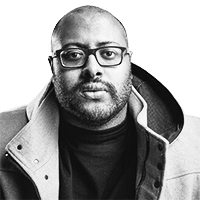Three years ago, 35 women who have accused Bill Cosby of sexual assault appeared on the cover of New York magazine. It had been decades longer for many of the women who came forward to say they were drugged and raped by the once-beloved sitcom star. And it was only now, this week, that they received any type of justice.
A jury Thursday found Cosby guilty of three counts of aggravated indecent assault for drugging and sexually assaulting Andrea Constand at his Elkins Park, Pennsylvania, home back in 2005. He now faces up to 30 years in prison.
The verdict stripped away the last remnants of The Cosby Show’s Cliff Huxtable—a façade that always had its shortcomings. The show presented a pristine image of an upwardly mobile black family, but rarely showed the working class black family members that real-life upper class black families are never too far removed from. It was also dripping with respectability politics—a flaw that became clearer in the mid-2000s when Cosby delivered his infamous “pound cake” speech.
As described by The Atlantic’s Adam Serwer, “Given at a 2004 NAACP event commemorating the 50th anniversary of Brown v. Board of Education, the decision striking down segregated public schools, Cosby mixed a familiar message of black empowerment with a palpable disgust for what he described as black lower-class norms and behavior. The speech, which came to be known as the ‘Pound Cake Speech,’ launched a second career for Cosby as a social critic who found supporters both on the American right and within the black community for his message that the black community’s real obstacles to social advancement were personal and cultural and could not be blamed on white racism.”
It was actually Cosby’s positioning of himself as a “moralist” that first allowed a judge to unseal his court documents in 2015 and removed his right to privacy. From then on, his victims and the media have been on a mission to take Cosby down for the crimes that many have known he’s committed for decades.
The difference between Cosby and Harvey Weinstein is that Cosby always seemed like he was a decent human being; Weinstein, on the other hand, was both publicly abrasive and a monster in private as well. And when the #MeToo era began, his victims were prominent white women in the media. Most of Cosby’s victims aren’t extremely famous, and many of them are black.
Furthermore, it’s harder to destroy the public opinion of black men who commit these crimes because of America’s history of jailing black men for crimes they didn’t commit—particularly sex crimes that were leveled against them by white women, as in the case of Emmett Till. It furnishes Cosby and men like R. Kelly with an army of conspiracy theorists who think they’re being taken down simply because they’re black.
But it ignores the fact that these men exploit white privilege to make themselves seem untouchable—and they also hurt members of their own community. All of R, Kelly’s victims are black. It’s why Kelly’s career persists. People still sing “Ignition” at karaoke. Schools still have their choirs belt out “I Believe I Can Fly.” In an interview with The Village Voice, Jim DeRogatis, who’s reported on the Kelly assault allegations for years, once said: “The saddest fact I’ve learned is nobody matters less to our society than young black women. Nobody.” It’s why so many black women still work with Kelly: the same industry that couldn’t care less about them as victims also ignores them as artists.
Cosby’s life unspooled because his fame was very much in the past, and his takedown was largely hubris. He routinely chastised the black community, telling them that swearing was beneath them. And yet, during his conviction this week, he lashed out and revealed his true self. District Attorney Kevin Steele argued that Cosby should be taken into custody because he could flee on his private plane, leading Cosby to shout, “He doesn’t have a plane, you asshole!” Then, when Steele attempted to revoke his bail, Cosby screamed: “I’m sick of him!”
This is the real Cosby: a villain who used his proximity to whiteness to prey on the black community because he knew that the black community is the least cared-about in America. He could degrade them and blame them for their own problems; taunt them and still rake in money, much like he taunted his victims for decades.
Maybe the answer to how we solve a problem like Cosby, and in turn R. Kelly, is that we stop allowing black men who abuse the black community to thrive. Just this week, white conservatives have praised Kanye West for supporting Trump, an alleged serial sexual abuser, and freeing black minds from the so-called “plantation politics” of Democrats. But then again, America loves to pit black people against one another. With Cosby, this time they finally lost.





